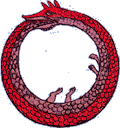
Isabel Clarke — Clinical Home Page
The ICS based approach to therapy developed here is essentially cross diagnostic. However, research into the overlap between psychosis and spirituality, and more recently, the significance of social context on the impact of anomalous experiences (Brett et al 2007, see below) provides a distinctive way of making sense of the so called ‘psychotic’ response to adversity.
A good introduction to this approach is provided by two articles I contributed to the special edition of the Asylum magazine produced by the Spiritual Crisis Network, edited by Janice Hartley,
Openness to Unusual Experiences. Psychosis and Spirituality re-organized.
Wrong Questions and Insidious Assumptions
and
The What is Real and What is Not Group.
(‘Asylum’. Spiritual Crisis Network Special Issue. Autumn 2011. Vol 18. No. 3.)
A recent book chapter covers the ideas and the clinical approach in more detail:Spirituality: a new way into understanding psychosis.
in E.M.J. Morris, L.C.Johns & J.E.Oliver Eds. Acceptance and Commitment Therapy and Mindfulness for Psychosis. Chichester: Wiley-Blackwell.P.160-171.
There is also a chapter on the "What is Real" approach in 'Psychosis and Spirituality: consolidating the new paradigm' (Chapter 15 - see home page and books).
This clinical programme was evaluated and written up for publication as follows.
What is Real and What is Not
A pilot evaluation of a group, delivered in an acute inpatient unit, to help individuals to re-conceptualize their vulnerability to anomalous experience in a less stigmatizing manner, and so motivate them to use the coping strategies presented to manage symptoms and relapse.
Wilson, H, Clarke, I & Phillips,R., (2009) Evaluation of an Inpatient Group CBT for Psychosis Program Designed to Increase Effective Coping and Address the Stigma of Diagnosis Psychosis. Link to paper (MS Word, 2003 compatible)
(Unfortunately, key members of the team had departed before the process of fulfilling reviewer requirements to get it published could be completed).
Research
Mary Owen's Research
However, Mary Owen recently conducted an RCT using this programme in Liverpool and published the results in the following paper: Owen, M., Sellwood, W., Kan, S., Murray, J., & Sarsam, M.(2015). Group CBT for psychosis: A longitudinal, controlled trial with inpatients. Behaviour Research and Therapy 65, 76 -85
In the course of this she produced an improved manual which she has given me permission to publish on this website as follows:
Mary Owen and collaborator's version of the What is Real Manual (Link on Manual's page).
On May 8th 2009 Donna Rutherford and myself presented on the ‘What is Real and What is Not’ programme at the meeting of the BPS Assertive Outreach Network.
See:
Powerpoint
In 2015 I was a keynot speaker at the XX Annual Course of Schizophrenia.
“IMAGINATION, REGRESSION AND RECOVERY IN PSYCHOSIS
Madrid
SPEAKERS
J. Strauss, L. Davidson, P. Lysaker (USA),
I. Clarke (United Kingdom), R. Mezzina (Italy),
M. Hernández Monsalve, G. Lahera (Madrid),
JM. Blanqué, M. Montoro (Barcelona), G. Roldán (Granada),
L. Tost, C. Hdez A. de Sotomayor (Tenerife),
y M. González de Chávez (Madrid)
Links to my presentations:
Presentation 1:
Bringing psychosis in from the cold. Seeing anomalous experiencing in the wider context of human cognition .
Presentation 2:
“What is real and what is not”. A therapeutic approach to psychosis that takes experience seriously and undermines stigma.
Alternative ways of conceptualising unusual experiences have been shown to be beneficial for recovery (see papers by Brett, Heriot-Maitland etc.)
The SPIRITUAL CRISIS NETWORK (www.spiritualcrisisnetwork.uk) provides such an alternative conceptualisation.
Experience, making sense of experience and science.
Negative Symptoms: a critical look and a motivational approach
On June 3rd 2009 I presented on ‘Negative Symptoms: a critical look and a motivational approach’ at the meeting of the BPS Rehabilitiation and Recovery Network. See Powerpoint File
Case experience from a Rehabilitation Service
Clarke, I Chapter 4, “Case experience from a Rehabilitation Service”, pp 69-78 in The Case Study Guide to Cognitive Behaviour Therapy of Psychosis Edited by David Kingdon and Douglas Turkington. Wiley 2002.
Appraisals of Anomalous Experiences Interview
Brett, C. M. C. Peters, E. P., Johns, L. C., Tabraham, P., Valmaggia, L. R. & Mcguire, P. K. “Appraisals of Anomalous Experiences Interview (AANEX): a multidimensional measure of psychological responses to anomalies associated with psychosis”, The British Journal of Psychiatry (2007) 191: 23-30
PSI Cymru talk: Formulating psychosis using ICS
PSI Cymru - Gregynog 2008 : 25/9/08-26/9/08
Theme: Third Wave CBT
Richard Bentall talked on: ‘The use of Acceptance and Commitment Therapy in psychosis’
Isabel Clarke’s talk:
Formulating psychosis using the Interacting Cognitive Subsystems (ICS) model.
Published paper:Introducing Further Developments Towards an ICS Formulation of Psychosis
Clarke, I. (2002) “Introducing Further Developments Towards an ICS Formulation of Psychosis. A Comment on Gumley, A., White, C.A. & Power, K. (1999) An Interacting Cognitive Subsystems Model of Relapse and the Course of Psychosis. Clinical Psychology and Psychotherapy. 6, 261-279”
Clinical Psychology and Psychotherapy 9, 47-50
Working across the Threshold
2007 ISPS (International Society for the psychological treatments of the Schizophrenias and other psychoses) UK Residential Conference. University of Bath. 26th - 27th March
I offered a parallel workshop, title: “Working across the Threshold:a therapeutic approach that embraces the otherness of the psychotic experience at the same time as facilitating adaptation to the shared world.”
See: abstract
